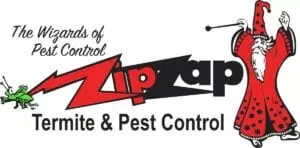FIVE FREQUENTLY ASKED QUESTIONS ABOUT TERMITE CONTROL FOR NEW HOMEOWNERS
Key questions about termite control include: What are the common signs of a termite infestation? How effective are termite baits compared to liquid treatments? What is the best time of year to schedule a termite inspection? Do termite control treatments pose any risks to humans or pets? How often should a home be inspected for termites?
5 Frequently Asked Questions About Termite Control for New Homeowners
1. How can I tell if my new home has termites?
Answer: Termites can be difficult to spot, but there are some signs to look for. These include:
- Mud tubes along foundations or walls
- Discarded wings near windows or doors
- Hollow-sounding wood
- Termite swarmers (winged termites)
- Visible termite damage to wood
If you suspect a termite infestation, it’s essential to contact a professional pest control company for a thorough inspection.
2. What is the best way to prevent termites?
Answer: While there’s no guaranteed way to prevent termites entirely, several steps can significantly reduce the risk:
- Regular inspections: Schedule annual termite inspections.
- Proper moisture control: Address any moisture issues around your home, such as leaky pipes or poor drainage.
- Maintain distance: Keep wood mulch and other organic materials away from the foundation.
- Professional treatment: Consider termite pre-treatments or ongoing protection plans.
3. How much does termite control cost?
Answer: The cost of termite control varies depending on several factors, including:
- The size of your home
- The type of termite infestation
- The chosen treatment method
- The geographic location
4. What is the difference between termite prevention and extermination?
Answer:
- Prevention: This involves creating an environment that is less attractive to termites. This often involves treating the soil around the foundation or Sentricon installed around your home and regular inspections.
- Extermination: Targets an existing termite colony to eliminate it. This typically requires a combination of treatments, including liquid termite treatments, bait stations, and targeted spot treatments.
5. Is it necessary to have a termite contract?
Answer: While not mandatory, a termite contract offers several benefits:
- Regular inspections: Ensures early detection of any infestation.
- Coverage for termite damage: Protects your investment in case of a termite problem.
- Peace of mind: Knowing your home is protected from these destructive pests.
It’s essential to carefully review the terms and conditions of any termite contract before signing.
Remember: Prevention is key when it comes to termites. Regular inspections and professional treatments can help protect your home from these costly pests.

Jeffery Preece BCE,PHE
Jeffery is a Board Certified Entomologist at ZipZap Termite & Pest Control



